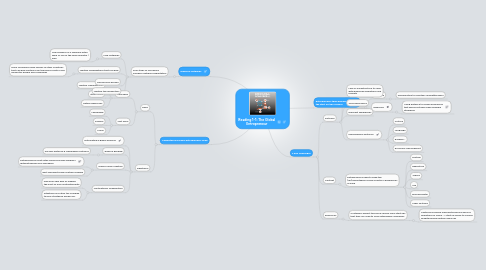
1. Competencies Global Entrepreneurs need
1.1. Basic
1.1.1. Hard skills
1.1.1.1. Identify Opportunities
1.1.1.2. Strike deals
1.1.1.3. Gather Resources
1.1.2. Soft Skills
1.1.2.1. Leadership
1.1.2.2. Passion
1.1.2.3. Vision
1.2. Additional
1.2.1. Articulating a global purpose
1.2.2. Alliance Building
1.2.2.1. Psychic Distance & Geographic Distance
1.2.3. Supply Chain Creation
1.2.3.1. Entrepreneurs must often choose foreign suppliers without having local managers
1.2.3.2. Best manufacturing locations change
1.2.4. Multinational Organization
1.2.4.1. Find your own way of making the most of your multinationality
1.2.4.2. Situations are often too complex to find a textbook answer for
2. Diaspora Networks
2.1. Four steps of successful Diaspora Network exploitation
2.1.1. Map Networks
2.1.1.1. The members of a diaspora often work or live in the same industry / area
2.1.2. Identify organizations that can help
2.1.2.1. Many companies have offices in other countries that can help visitors from the home country find infulential people and companies
2.1.3. Tap informal groups
2.1.4. Identify the Influentials
3. Entrepreneurs think globally right from the start for two reasons
3.1. Defensive
3.1.1. Globalization to maintain competitiveness
3.2. Offensive
3.2.1. Using distance to realize businesses that would not have been possible otherwise
4. 3 Key Challenges
4.1. Distance
4.1.1. Lack of infrastructure to cope with dispersed operations and markets
4.1.2. Time differences
4.1.3. Different workweeks
4.1.4. Psychological Distance
4.1.4.1. Culture
4.1.4.2. Language
4.1.4.3. Religion...
4.1.4.4. Economic Development
4.2. Context
4.2.1. Entrepreneurs need to keep the (dis)advantages of each country's differences in mind
4.2.1.1. Political
4.2.1.2. Regulatory
4.2.1.3. Judical
4.2.1.4. Tax
4.2.1.5. Environmental
4.2.1.6. Labor systems
4.3. Resources
4.3.1. Customers expect the same service from start ups that they are used to from established companies
4.3.1.1. Customers require manufacturing and service operations in China -> Start up needs to comply despite having limited resources

